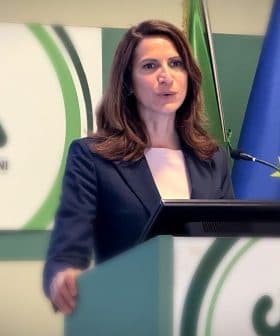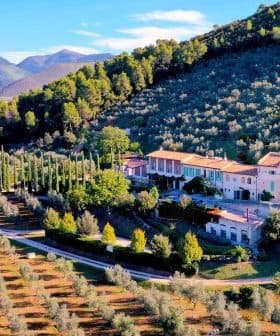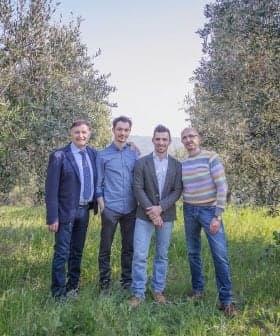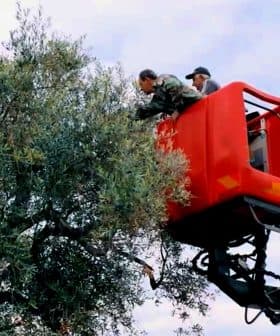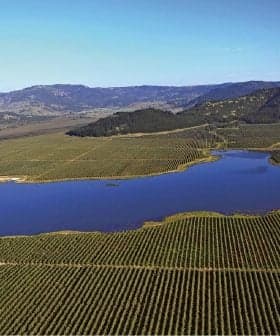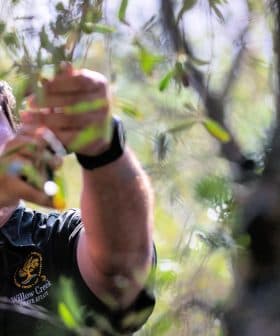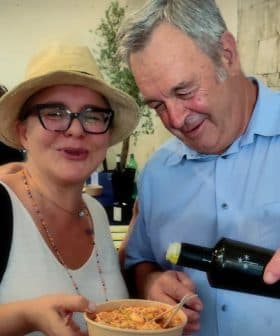Portuguese Olive Oil Brands Triumph in New York
Portugal’s second-largest harvest resulted in 34 awards at the 2025 NYIOOC World Olive Oil Competition, with producers attributing the success to favorable weather conditions. Producers from Alentejo, Portugal’s largest olive oil-producing region, earned ten awards, with Esporão leading the way with five awards for native olive varieties. The awards serve as a benchmark for clients and consumers worldwide, highlighting the quality of Portuguese olive oils and promoting the profile of Alentejo on a global stage.
Farmers and millers in Portugal capped off the country’s second-largest harvest with 34 awards at the 2025 NYIOOC World Olive Oil Competition.
European Commission data show that Portugal produced 177,000 metric tons of olive oil in the 2024/25 crop year, finishing at the low end of initial estimates. Producers across the country attributed the production increase to plentiful winter rain and otherwise favorable weather during most of 2024.
In Alentejo, Portugal’s largest olive oil-producing region by a significant margin, five farmers and millers combined to earn ten World Competition awards.
When a Portuguese extra virgin olive oil from the rugged hills of the northeast earns a medal in New York, it tells a global audience that tradition, authenticity and excellence live here.
The biggest winner from the country and region was Esporão, which earned five awards for a series of monovarietals, including the native Cordovil and Cobrançosa.
“This is the validation of our commitment to producing exceptional extra virgin olive oils while preserving native Portuguese olive varieties,” said Ana Carrilho, the head of Esporão’s olive oil business unit.
“It is a recognition that motivates us to continue pushing boundaries in olive oil quality and reinforces the value of what we do in the Alentejo region, by working with more than 60 local olive farmers,” she added.
See Also:The best extra virgin olive oils from PortugalCarrilho said awards from the World Competition serve as an important benchmark for clients and consumers worldwide after an ‘off-year’ resulted in a lower-than-anticipated harvest.
“Weather conditions were unpredictable, thus the most important thing was ensuring optimal ripeness at the time of olive picking, while maintaining the health of our organic groves,” Carrilho said.
While super-high-density olive groves flourish in the region, Alentejo is still home to plenty of traditional groves, including those of Monte Vale de Baio, which yielded a Silver Award at the 2025 NYIOOC.
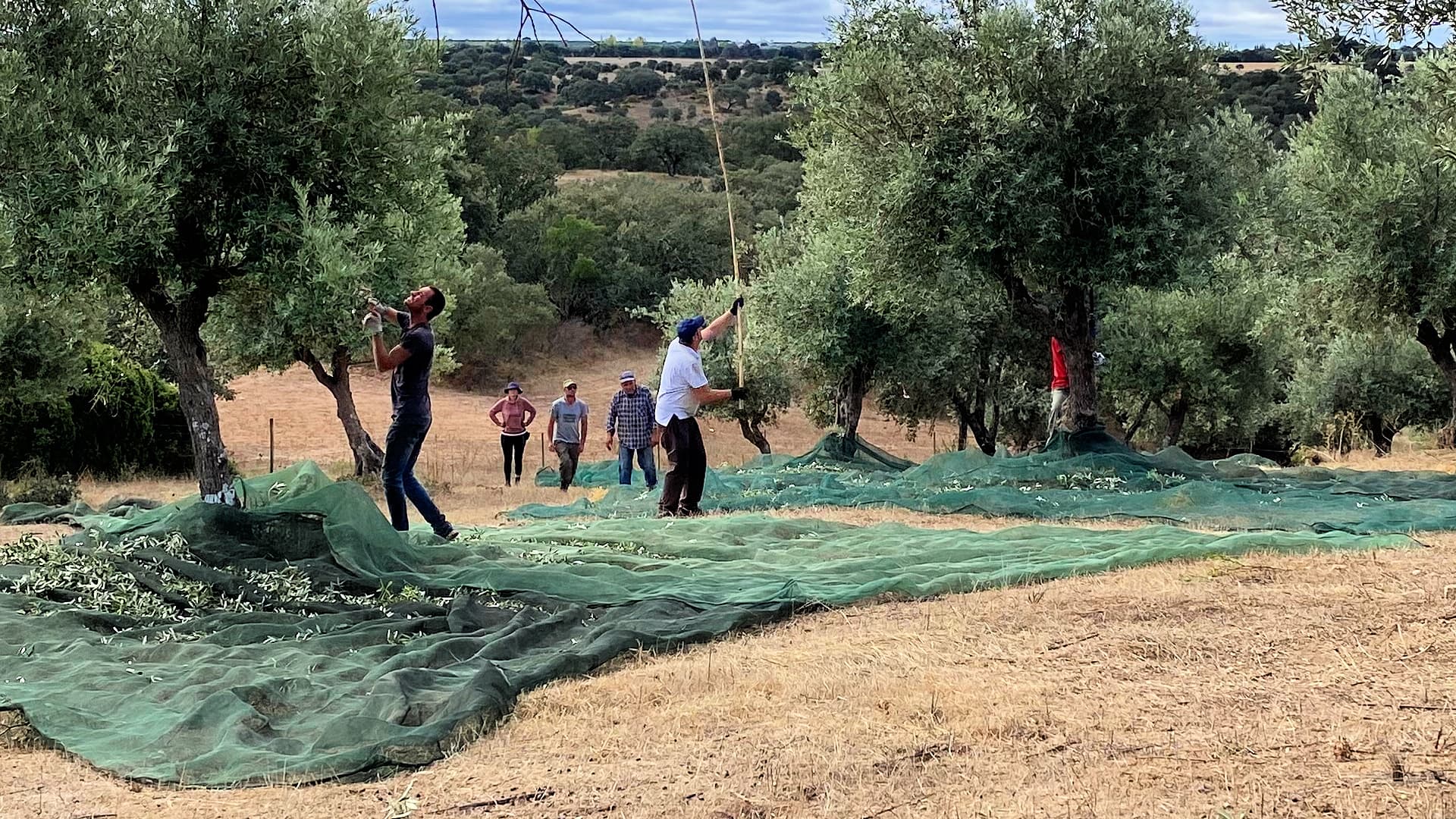
Portuguese producers capped off the country’s second-highest harvest with 34 awards. (Photo: Monte Vale de Baio)
“Alentejo has many small producers of excellent extra virgin olive oil, and we are happy that we were able to increase the focus on our region a little,” co-owner Bart Hubertus Janssen said.
“We encourage other producers to participate in international tasting events and competitions, which will help put our region more firmly on the map of the world’s olive oil producers,” he added.
Monte Vale de Baio was awarded for its early-harvest organic Galega monovarietal, which boasts notes of green apple, green olive leaf and a slightly spicy finish.
Hubertus Janssen said the 2024/25 harvest was significantly lower than the previous one, with the small producer harvesting six tons of olives compared with 25 tons in 2023/24, but yielded more bitter and pungent oils.
“The annual alternation of production volume is typical for traditional, organically managed olive groves – the soil needs more than a year to recover from a large harvest,” he said.
“We don’t irrigate or fertilize,” Hubertus Janssen added. “If nature wants to give us more in a particular year, we gratefully accept; if not, we hope next year will be better. Obviously, we are fortunate that extra virgin olive oil is not our only business.”
Hubertus Janssen cited working with a third-party miller as one of the most significant challenges to producing award-winning quality olive oil, especially since he believes in a very early harvest to get the best out of the Galega variety.
“In 2024, we harvested in the first days of October,” he confirmed. “The yield will not be as good, but that is of less concern to us. Another major challenge for our consultant every year is contracting a team of harvesters.”
Elsewhere in Alentejo, the producers behind Est. Manuel da Silva Torrado celebrated winning a Silver Award for its medium-intensity Saloio blend.
“Our best market is the United States, so in terms of promotion and recognition is very important to have this distinction,” said Manuel Norte Santo, the company’s export and commercial manager.
“Our customers value the presence of a medal from this competition on the bottle, so it is something that helps us a lot on a commercial level,” he added.
While the company generally had a better harvest in 2024/25 than the previous crop year, Norte Santo added that quality was an issue due to the impact of widespread disease.
“The main challenge in the 2024/25 harvest was the increase in the gafa in the field, which increased the acidity of the olives and, at some point, degraded 100 percent of the fruit,” he said. This was a condition that increased in a very short time, not allowing farmers to prepare for it.”
Despite the challenges, Norte Santo emphasized the importance of the awards for promoting the profile of Alentejo olive oils on the global stage.
“The NYIOOC award helps a lot in the recognition of the Alentejo olive oil,” he said. “It is very important to promote Portugal and Alentejo, as one of the best regions to produce olive oil.”
Situated in the sun-scorched Eastern Algarve, south of Alentejo, the producers Viveiros Monterosa won a Silver Award for a medium Picual, the company’s eleventh consecutive World Competition accolade.
Meanwhile, two producers in Beira, which borders Alentejo to the north, combined to earn two awards. In Ribatejo, north of Alentejo and west of Beira, Sociedade Agrícola Ouro Vegetal earned seven awards for its line of monovarietals in collaboration with Veronica Foods.
“Veronica Foods reports that the award reception has been great among their retailers,” chief executive Alberto Serralha said. “By providing this additional marketing material, fresh, high-quality Portuguese extra virgin olive oil has been highlighted throughout North America, demonstrating that through education, even some of the more uncommon Portuguese varieties can be broadly accessed and celebrated.”
Despite high temperatures during the early harvest, Serralha said the company achieved “some of our best oils ever,” from a medium crop, similar to the previous year.
“Early harvest is always complicated in Portugal due to high temperatures, and the past season was no exception,” Serralha said. “Having instant paste chilling ability using high vacuum malaxation has allowed us to keep up with quality, even during warm September and early October. Planning has also been a key part in shortening the time between harvest and processing as much as possible.”
Despite its modest yields compared to the rest of the country, seven producers in northern Trás-os-Montes combined to win 14 awards at the World Competition, including perennial World Competition winners and newcomers.
“Since 2016, our Casa de Santo Amaro extra virgin olive oils have won awards at the NYIOOC competition every year,” co-owner António Pavão said. “They are the result of a huge effort by all the Casa de Santo Amaro team, who work daily to make this recognition possible.”
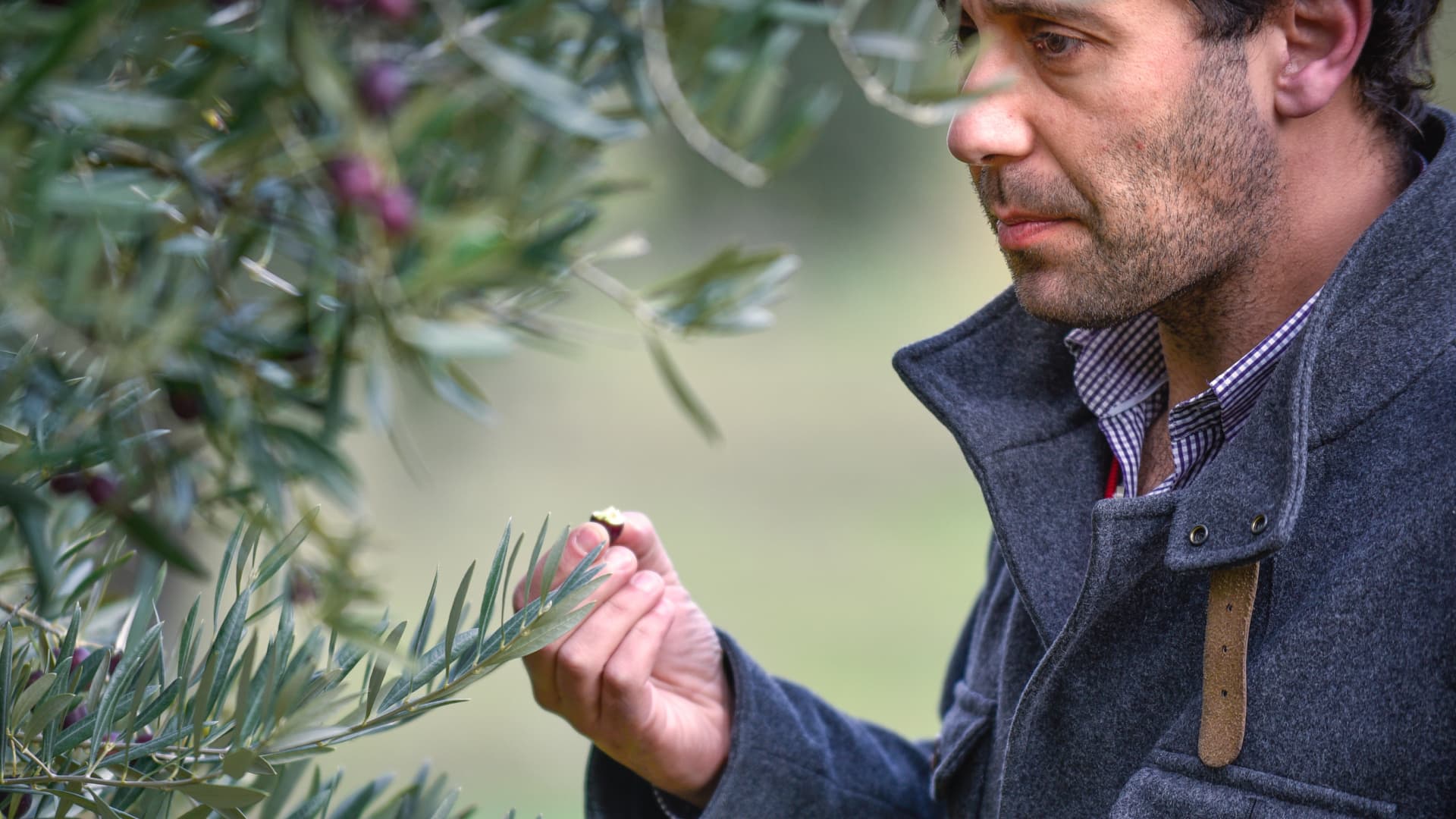
Casa de Santo Amaro founder António Pavão inspects his groves ahead of another award-winning harvesting. (Photo: Casa de Santo Amaro)
This year, the producer earned two Gold Awards for an organic Cobrançosa and a delicate blend and a Silver Award for another Cobrançosa.
The haul of three awards capped off a fruitful harvest at Casa de Santo Amaro, which saw production increase by 50 percent compared to the previous one.
“In 2024, the weather was good, with several rainy seasons, which had not happened for several years,” Pavão said. “As usual, by bringing forward the harvest, which began in October, we avoid the appearance of pests and diseases in the olives. Only fresh and healthy olives can produce high-quality olive oil.”
The producers behind fellow serial World Competition winner Quinta dos Olmais celebrated an eighth award in nine years for its flagship organic Cobrançosa monovarietal.
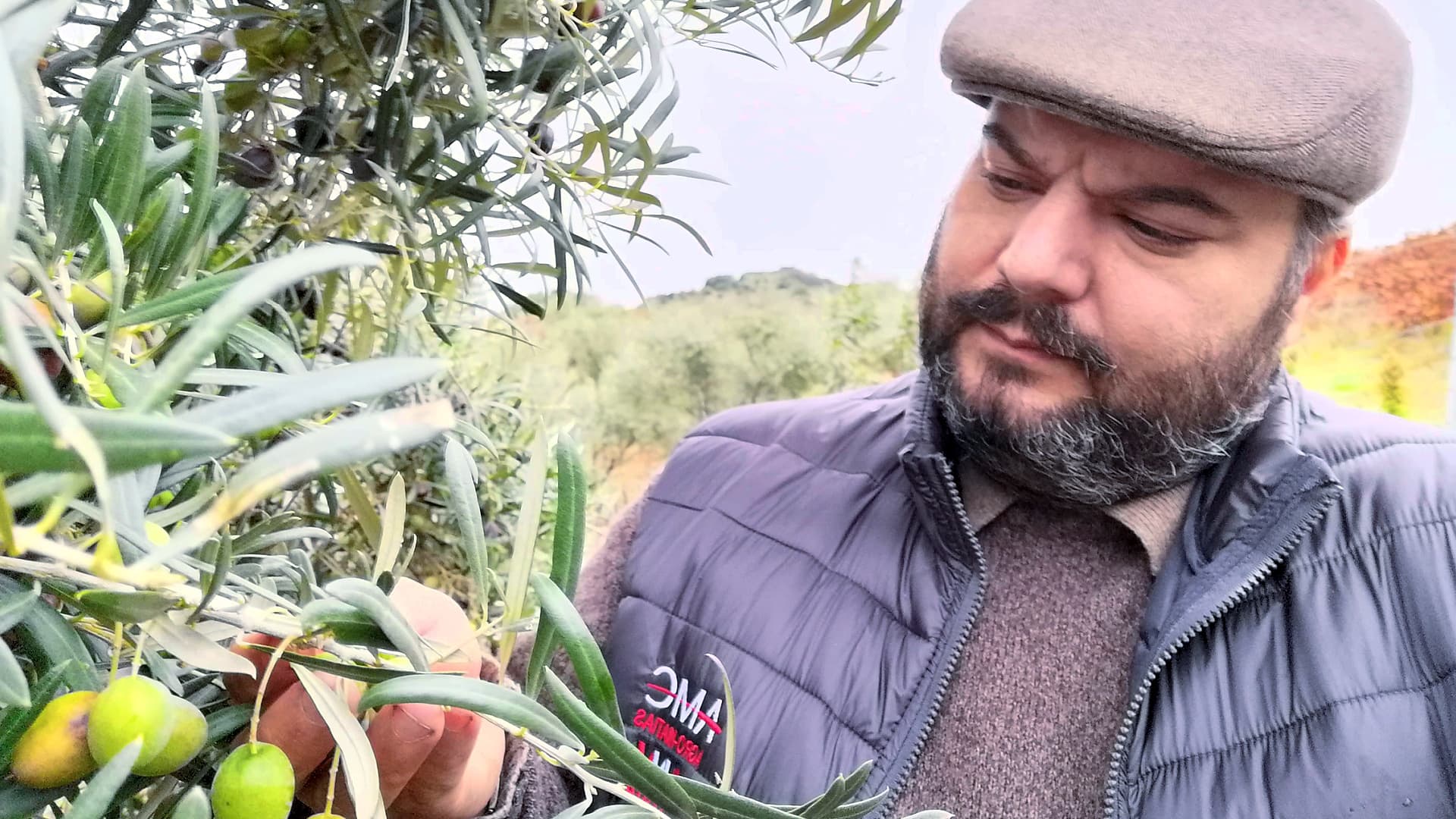
Quinta dos Olmais founder Julio Alves collected his eighth World Competition award. (Photo: Quinta dos Olmais)
“Being awarded for the eighth time at the NYIOOC is not just a recognition,” founder Julio Alves said, “it’s a reaffirmation of everything we believe in and work for.”
“Olmais owes a great deal to that first medal we won years ago,” he added. “Without it, the brand might not even exist today. That early recognition gave us the courage to believe that a small producer from Trás-os-Montes could stand shoulder to shoulder with the best in the world.”
Indeed, Alves sees winning awards at the NYIOOC as one of the best ways to showcase the quality of his fellow producers from the relatively unknown Trás-os-Montes.
“When a Portuguese extra virgin olive oil from the rugged hills of the northeast earns a medal in New York, it tells a global audience that tradition, authenticity and excellence live here,” he said. “It’s not just about Olmais — it’s about elevating our entire region and honoring the hardworking producers who dedicate their lives to this craft.”
On a personal level, Alves said the NYIOOC awards are particularly meaningful because they confirm that he and the rest of the team have timed the harvest perfectly.
Picking the olives at the optimum moment of ripeness and getting them to the mill within hours to preserve their natural aromas and complexity is always one of the main challenges of producing award-winning extra virgin olive oil.
“But this year, like many others, we were also affected by the chronic lack of labor in the sector — a problem that’s worsening and threatening traditional agriculture,” he added. “Yet despite these difficulties, we remained true to our methods and spirit, and that dedication paid off.”
Along with multi-year victors, Trás-os-Montes saw a first-time winner at the world’s largest olive oil quality competition: Wildly Virgin.
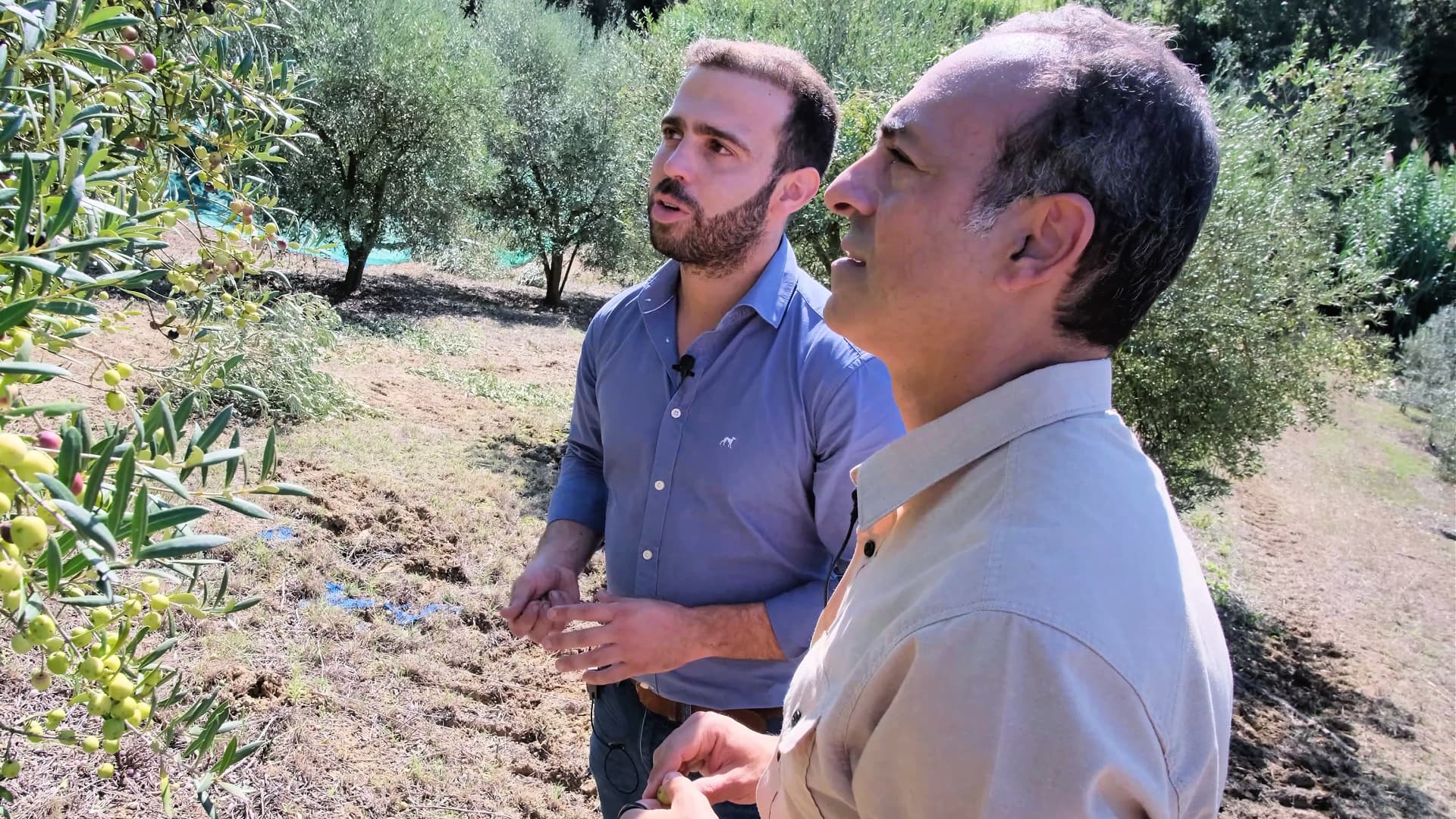
Nader (right) inspects olive groves with a producer (Photo: Wildly Virgin)
Chief executive Nader Aknoukh said he was “thrilled” to win a Gold Award for the company’s organic medium-intensity Joaquim’s Reserve Cobrançosa monovarietal.
“Part of our mission at Wildly Virgin is to bring more attention to the amazing quality of Portuguese extra virgin olive oil to United States consumers,” he said. “The American market is primarily California, Italian and Spanish oils.”
“A Gold Award from the premier olive oil quality competition in the world is a great testament to the quality of Portuguese extra virgin olive oil,” Aknoukh added. “The retailers we work with in the U.S. will certainly have a more favorable perception of Portuguese olive oil with this award.”
Even though the company experienced a challenging harvest and lower yield than average, Aknoukh said he was pleased with the quality. Instead of in the groves or mills, he said the most significant challenge was getting his product to the U.S. ahead of anticipated tariffs.
See Also:2025 NYIOOC CoverageWhile it remains too early to predict how the coming 2025/26 crop year will turn out, producers across Portugal said they are optimistic given the current conditions.
“We are optimistic,” Aknoukh confirmed. “Portugal is fortunate that water is less of an issue than in other southern European areas due to the Alqueva dam.”
Meanwhile, Hubertus Janssen described a spectacular bloom in his olive groves in Alentejo, setting the stage for a “top year” in the coming harvest.
“We hope the weather normalizes soon, as the region has received too much rain year to date,” he said.
In Ribatejo, Serralha is optimistic that the abundant rainfall and significant flowering will result in a good fruit set, laying the groundwork for a good harvest in 2025/26.
“The weather forecast shows mild temperatures for the coming weeks, and conditions look ideal for an adequate fruit set,” he said. “Our reservoirs are overflowing, so there won’t be a lack of water for irrigation this year.”
Back in Trás-os-Montes, Pavão and Alves agreed that the outlook remains positive.
“It may still be early in May, but the weather has been good, with several rainy seasons, and we are hopeful that the next harvest, starting in October, will be very good,” Pavão said.
“Everything suggests we could be on the path to another promising year,” Alves added. “But as always, nature has the final word.”
“We hope we’ll be spared from late rains or hailstorms that could endanger the crop,” he concluded. Until then, we’ll keep nurturing the groves with the same care and devotion that brought us here.”


